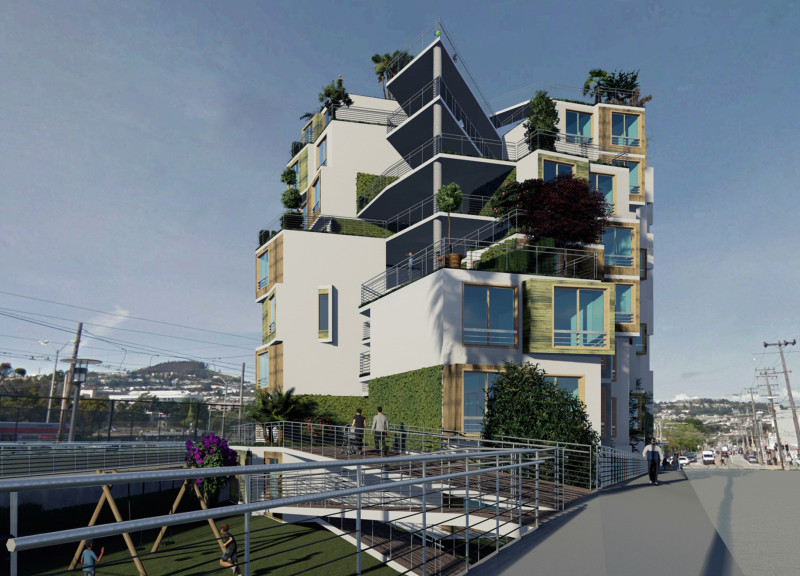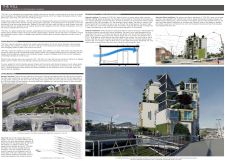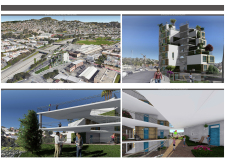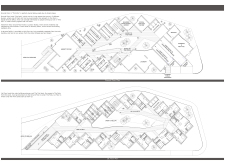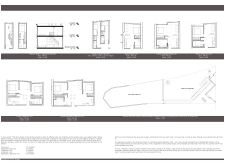5 key facts about this project
The building features a stepped massing that mirrors the natural topography of San Francisco. This architectural choice creates terraces that serve not only as living spaces but also as public gardens, enhancing the connection between residents and the environment. The design incorporates a range of unit types, including studio apartments and adaptable living spaces, thereby accommodating a variety of demographics.
Unique Design Approaches
One of the standout elements of "The Hill" is its community-centric layout. The project includes common areas such as an amenity room, laundry facilities, and a daycare center for residents. These spaces are intended to foster a sense of belonging and promote social cohesion among inhabitants. The building also integrates public pathways, allowing pedestrians to traverse the site and interact with both residents and visitors.
Sustainability is a core tenet of the design. The use of recycled wood for cladding and interior finishes reduces the environmental impact while enhancing visual appeal. Additionally, large glass panels are incorporated to maximize natural light and facilitate airflow, reducing reliance on artificial lighting. The design also features a rainwater harvesting system and solar panels to further promote energy efficiency.
Architectural Considerations
"The Hill" embodies a commitment to adaptability within its design framework. The modular construction approach enables potential adjustments in unit sizes to meet changing demographic needs without compromising the overall architectural intent. This flexibility supports long-term sustainability and functionality, vital in an urban environment marked by diversity.
Overall, "The Hill" represents a thoughtful solution for affordable housing, combining innovative design with a focus on community and sustainability. To delve deeper into the architectural details and design strategies of this project, readers are encouraged to review the architectural plans and sections available for a comprehensive understanding of this housing initiative.


